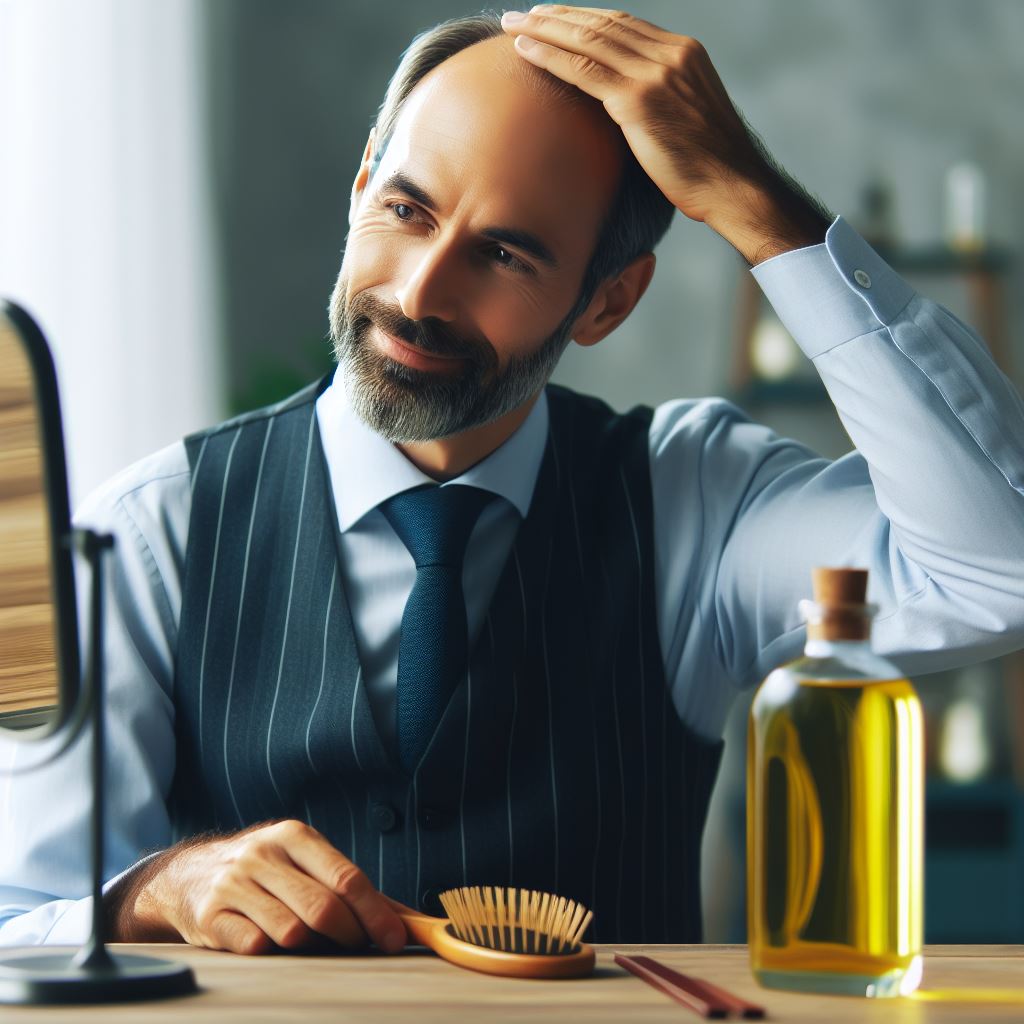Hair Loss and Aromatherapy
Learn how aromatherapy can help hair loss.

Harnessing Aromatherapy to Combat Hair Loss: A Natural Approach.
Hair loss, a distressing condition affecting millions globally, can erode self-esteem and dampen one's quality of life. While genetics, hormonal changes, medical conditions, and stress often serve as culprits, the quest for effective treatments is varied and ongoing. Amid conventional approaches like medications and advanced procedures, aromatherapy emerges as a compelling natural alternative. Rooted in ancient traditions, aromatherapy utilizes essential oils to enhance physical and mental well-being, including addressing hair loss.
Aromatherapy hinges on the potent properties of essential oils derived from plants. These oils, laden with concentrated bioactive compounds, offer antibacterial, anti-inflammatory, and stimulating effects pertinent to scalp health and hair growth. Essential oils serve not merely as fragrant agents but as holistic remedies promoting comprehensive health.
A key player in the domain of hair growth is the essential oil of **rosemary**, widely celebrated for its revitalizing effects. Rosemary oil is believed to improve cellular metabolism, thereby stimulating hair follicles and aiding in blood circulation to the scalp. Studies suggest that individuals who massaged a blend of rosemary oil into their scalps experienced increased hair growth, comparable to those using conventional hair loss treatments like minoxidil, albeit with fewer side effects.
Lavender oil stands out due to its profound calming properties and potential to foster new hair growth. Known for alleviating stress and anxiety, both contributors to hair loss, lavender oil not only soothes the mind but may also enhance scalp health. It exhibits antimicrobial properties that can mitigate scalp conditions like dandruff and fungal infections, which often exacerbate hair loss.
Peppermint oil is another potent contender in the battle against hair loss. Its menthol content imbues it with a cooling and tingling sensation that invigorates the scalp. Peppermint oil has been found to extend the anagen (active growth) phase of hair follicles, thereby promoting thicker and fuller growth. Moreover, it enhances blood circulation to the scalp, ensuring that hair follicles receive adequate nutrients essential for robust growth.
Cedarwood oil also warrants attention for its ability to balance oil production in the scalp. It possesses antifungal and antibacterial properties that help maintain a healthy scalp environment, preventing conditions that could trigger hair loss. Regular scalp massages with cedarwood oil can harmonize scalp oil levels and foster a conducive environment for hair regrowth.
When employing aromatherapy for hair loss, blending these essential oils with carrier oils such as jojoba, coconut, or almond oil is crucial for safe application. A patch test to rule out any allergic reactions remains a wise precaution.
In conclusion, while aromatherapy may not serve as a standalone remedy for severe hair loss conditions, it certainly offers a natural and gentle adjunct to one’s hair care regimen. By integrating essential oils into regular scalp massages, individuals can potentially stimulate hair growth, reduce stress, and cultivate a healthier scalp environment, thereby reclaiming not just their hair but also their confidence.